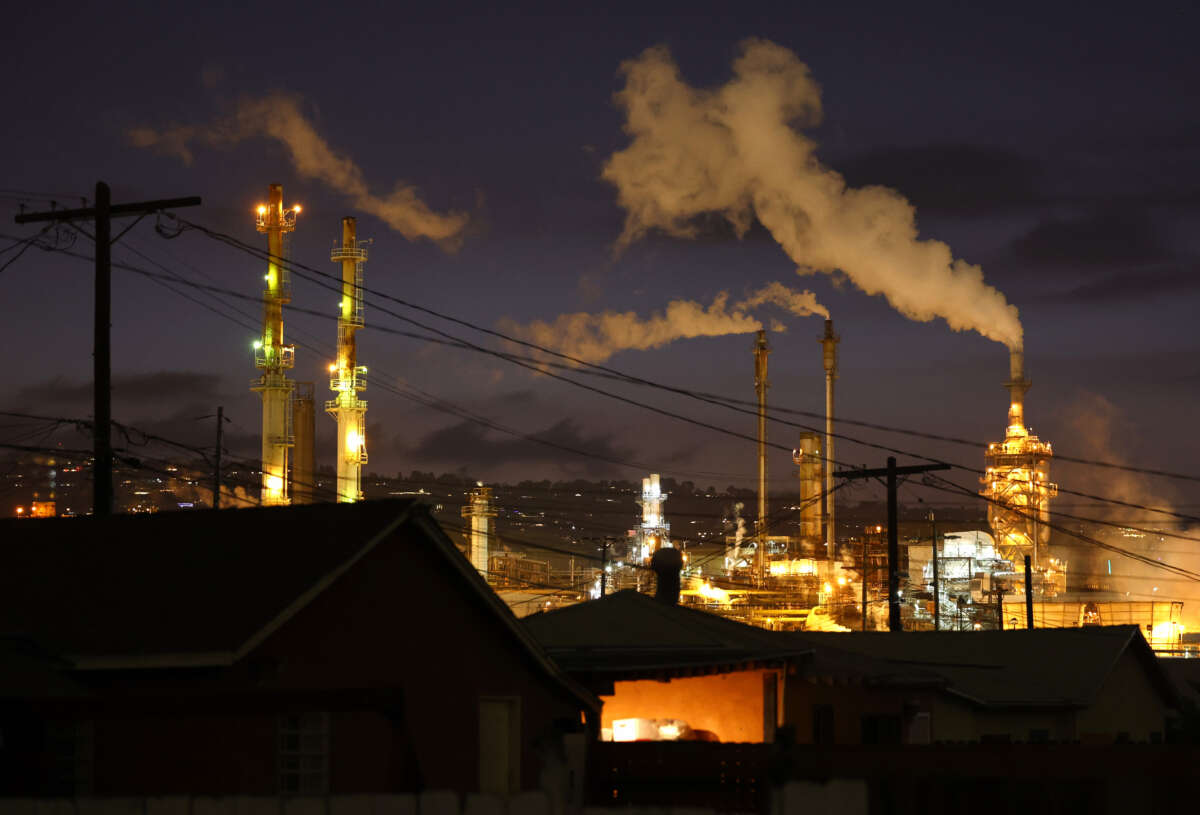Honest, paywall-free news is rare. Please support our boldly independent journalism with a donation of any size.
A United Nations panel composed of the world’s top scientists is set to release its latest climate assessment on Monday as governments fail to heed repeated, increasingly urgent warnings that the window for action to prevent catastrophic global heating is nearly shut.
The landmark report from the Intergovernmental Panel on Climate Change (IPCC) will come after a year in which planet-warming CO2 emissions shattered records once again as the impacts of such pollution — from “apocalyptic” flooding in Pakistan to deadly drought in East Africa — continued to mount.
After repeated delays, government delegations signed off on the IPCC’s Sixth Assessment Report on Sunday, clearing the way for the formal release of a sprawling synthesis of years of climate research.
The Associated Press reported that the final decision came after “officials from big nations such as China, Brazil, Saudi Arabia, the United States, and the European Union haggled through the weekend over the wording of key phrases in the text.”
Lesley Hughes, a former IPCC author and a director of the Australia-based Climate Council, said ahead of the report’s release that “while this is a summary report of work we’d already seen in development, there is no doubt the findings of this report will be dire.”
“Since the previous IPCC report was released, we’ve had even more unnatural disasters,” Hughes added. “We must focus on the fact that predictions are now becoming observations. We’ve also had a period since the previous IPCC report came out where global emissions are rising once again, so the gap between where we are and where we need to go is increasing rather than decreasing.”
The IPCC’s 2021 report was deemed a “code red for humanity,” a glaring signal that accelerated global action to phase out fossil fuel extraction and use was needed to avert disaster.
But in the years since, governments — specifically the rich nations most responsible for the climate crisis — have refused to act with the speed and ambition that scientists say is necessary.
At the end of 2022, the U.N. climate conference — an event teeming with fossil fuel lobbyists — ended with no concrete action to rein in oil and gas production.
As a result, hugely profitable global fossil fuel giants are planning to expand their operations in the coming years, potentially locking in additional emissions and further imperiling efforts to meet critical warming targets.
Governments, including those that claim to view the climate crisis as an existential threat, are actively aiding the continued extraction of fossil fuels. Just last week, the Biden administration approved the largest proposed oil drilling project on U.S. public land despite widespread opposition.
“This is the kind of thing that we simply can’t afford to do anymore,” Kristina Dahl of the Union of Concerned Scientists wrote late last week. “The fossil fuel industry has, for decades, opposed and obstructed any meaningful action on climate change. And despite ardent claims otherwise, the industry has refused to commit to align its business model with what the IPCC says is required to minimize climate harms. The industry remains a barrier to the future the world’s children deserve.”
Simon Bradshaw, the Climate Council’s director of research, said Monday that the IPCC’s new report will represent “a final warning.”
“The central message from climate scientists is unmistakable: governments must rally to drastically cut emissions and cease the extraction and burning of fossil fuels this decade,” said Bradshaw. “That message has been delivered repeatedly, and consistently, for many decades.”
“We are seeing progress when it comes to renewable energy uptake, and cleaner transport, but things just aren’t moving fast enough. If we haven’t seriously turned things around by the time the next such assessment report is due, then we’ll be in very deep trouble,” Bradshaw added. “We have a choice here to act swiftly this decade. If we start giving it our all right now, we can avert the worst of it. So many solutions are readily available, like solar and wind power, storage, electric appliances, and clean transport options. We need to get our skates on.”
A terrifying moment. We appeal for your support.
In the last weeks, we have witnessed an authoritarian assault on communities in Minnesota and across the nation.
The need for truthful, grassroots reporting is urgent at this cataclysmic historical moment. Yet, Trump-aligned billionaires and other allies have taken over many legacy media outlets — the culmination of a decades-long campaign to place control of the narrative into the hands of the political right.
We refuse to let Trump’s blatant propaganda machine go unchecked. Untethered to corporate ownership or advertisers, Truthout remains fearless in our reporting and our determination to use journalism as a tool for justice.
But we need your help just to fund our basic expenses. Over 80 percent of Truthout’s funding comes from small individual donations from our community of readers, and over a third of our total budget is supported by recurring monthly donors.
Truthout has launched a fundraiser to add 500 new monthly donors in the next 9 days. Whether you can make a small monthly donation or a larger one-time gift, Truthout only works with your support.
